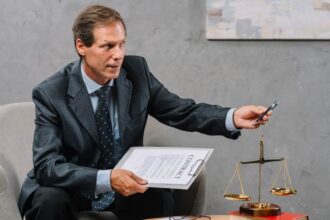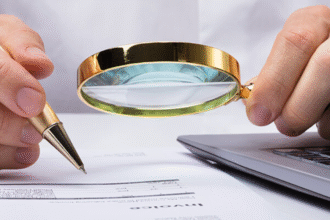Conviction rates in the United States federal court system are high, around 75%-85%, with 74% of people charged with vehicle theft convicted. Federal court conviction rates tend to be higher, and the conviction rate in 2012 was 93%.

In criminal law, the difference between conviction and acquittal often hinges on the quality of evidence presented and how effectively an experienced lawyer for criminal cases interprets it for the jury. Expert witnesses serve as crucial allies in criminal defense, offering specialized knowledge that can illuminate technical aspects of a case, challenge prosecution evidence, and provide alternative explanations for seemingly damning circumstances.
In criminal law, the difference between conviction and acquittal often hinges on the quality of evidence presented and how effectively it’s interpreted for the jury. Expert witnesses serve as crucial allies in criminal defense, offering specialized knowledge that can illuminate technical aspects of a case, challenge prosecution evidence, and provide alternative explanations for seemingly damning circumstances.
What Are Expert Witnesses?
Expert witnesses differ fundamentally from fact witnesses in that they’re permitted to offer opinions based on their specialized knowledge, training, and experience. While fact witnesses can only testify about what they directly observed, expert witnesses can analyze evidence, interpret data, and draw conclusions within their field of expertise. This distinction makes them invaluable in criminal cases where technical, scientific, or specialized knowledge is essential to understanding the evidence.
The courts recognize experts in numerous fields relevant to criminal defense, including forensic science, psychology, ballistics, digital forensics, medical examination, accident reconstruction, and financial analysis. Each brings unique insights that can reshape how evidence is perceived and understood.
Challenging Prosecution Evidence
Wrongful prosecution rates range from 2% to 10%, and one of the most powerful applications of expert witness testimony lies in challenging the prosecution’s evidence. Forensic evidence, often viewed as infallible by juries, can be scrutinized and questioned by defense experts who understand the limitations, potential errors, and alternative interpretations of scientific testing.
375 people have been exonerated via DNA testing since 1989, but while DNA evidence might seem conclusive, a forensic expert can explain contamination possibilities, statistical limitations, or procedural errors that could affect reliability. Similarly, digital forensics experts can challenge computer evidence by demonstrating how data might be altered, corrupted, or misinterpreted. This critical analysis doesn’t necessarily prove innocence but introduces reasonable doubt about the prosecution’s conclusions.
Providing Alternative Explanations
Expert witnesses excel at presenting alternative theories that explain the evidence in ways favorable to the defense. A medical examiner might offer different conclusions about cause of death, while a ballistics expert could demonstrate that bullet trajectory evidence supports self-defense rather than premeditated murder. These alternative explanations provide juries with reasonable doubt about the prosecution’s narrative.
Psychological experts play a particularly important role in cases involving mental health defenses, capacity issues, or situations where the defendant’s state of mind is crucial. Their testimony can explain complex psychological conditions, the effects of trauma, or cognitive impairments that might affect culpability or the reliability of confessions.
Educating the Jury
Perhaps equally important is the expert’s role as educator. Complex scientific concepts, technical procedures, or specialized knowledge areas require translation into terms that lay jurors can understand and evaluate. Expert witnesses serve as interpreters, breaking down complicated evidence into comprehensible explanations that allow juries to make informed decisions.
This educational function extends beyond mere explanation to helping juries understand the limitations of evidence, the margin for error in testing procedures, and the difference between possibilities and certainties in scientific analysis.
Strategic Considerations
Effective use of expert witnesses requires careful strategic planning. The defense must consider timing, credibility, cost-effectiveness, and how expert testimony fits within the overall defense strategy. The expert’s ability to communicate clearly, withstand cross-examination, and maintain credibility under pressure often determines the impact of their testimony.
Expert witnesses represent a cornerstone of modern criminal defense, providing the specialized knowledge necessary to challenge complex evidence and offer alternative interpretations that can create reasonable doubt. Their testimony can transform technical evidence from an insurmountable obstacle into a defendable aspect of the case.














